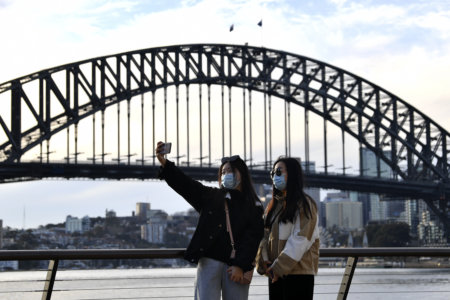
Scores of international students flock to Australia for a world-class education each year. Further bolstering its appeal is the country’s attractive post-study work visa which allows international students to gain Australian work experience and can serve as a possible pathway to gaining an Australian permanent residency. Despite that, researchers from Deakin University found that international students have found it challenging to find work in Australia and are shifting their strategies to get a foot in the door in the labour market, including turning to casual jobs in a “backwards career move”.
On SBS Vietnamese, two Deakin academics said many international students who stay in Australia on a 485 visa have to turn to alternative job search channels such as Gumtree to look for part-time or casual jobs. Previously, a separate Deakin University survey found that Australia’s post-study work visa played a role in the majority (76%) of respondents’ decision to study in Australia. The Temporary Graduate Visa (Subclass 485) allows international students to stay in Australia after they graduate for two to four years to gain work experience; Hong Kong passport holders may stay for five years. The Australian government’s amendments to the application requirements and visa criteria for the Subclass 485 visa in September aims to assist international students by allowing students studying remotely to apply for and receive the Temporary Graduate visa from outside Australia.
“Prior to this amendment, most applicants were required to be in Australia to apply for the visa and to be granted the visa. The amendments provide former international students with the opportunity to obtain a visa to return to Australia when travel restrictions are lifted. The visa period will run from the date of entry to Australia,” said the government. The amendment, however, only applies to current and new students who are studying online with an Australian university remotely due to COVID-19.
Once students have their visa, they would be ready to enter Australia as soon as border restrictions ease, or if they are approved for a travel exemption. The visa duration will start from the date of entry into Australia, not the day students are granted the visa. Applicants would no longer need to hold a student visa in the six months prior to applying for the 485 visa. Students also have 12 months to apply for the post-study work visa from the time they complete their course. These changes only apply to applicants who were offshore for all, part of, or a portion of the period beginning Feb. 1, 2020, and Sept. 19, 2020.
Despite this, research suggests it’s hard for international students to get jobs in their host country for several reasons. Australian employers prefer locals, who they say understand the country’s workplaces, legal rights, local terminology and expectations. “Employers may hesitate to recruit international students in general because of concerns over complexities and unclarity related to their visa status and these students’ unfamiliarity with Australian workplace culture[,] their lack of local work experience and their English proficiency,” said researchers. So while the 485 visa is a recognition of graduates’ legal entitlement to work, it was seen by some employers as a source of uncertainty and risks.
What can be done to support post-study work visa holders?
We just published another paper on how international student graduates adapt their behaviours and strategies when engaging with the Australian labour market. Many thanks to @LyTran18 for leading this paper and to @HuongLTPhan1 and @mark_rahimi for being great co-authors.
1/2
— George Tan (@georgetan_gt) December 14, 2020
Despite their relatively high level of education, the temporary nature of the 485 visa means international students “lack bargaining power in the labour market.” Many factors affect students’ ability to find employment in their host country. “Even though the temporariness of the post-study visa leaves a narrower door for international graduates than it might be intended, the visa does benefit those who successfully navigate through obstacles. To put it differently, in some cases, the 485 visa serves to facilitate graduates’ opportunity to continue working once they have already secured a job rather than leading them to have the jobs in the first place,” said researchers.
While many job applicants may be turned down due to their visa status rather instead of their incompetency, some of the interviewed international graduates managed to secure a job thanks to their attempts to discuss the visa with recruiters. “In a rare case, the employer was willing to even keep the position on hold for the candidate until his 485 visa was granted,” said the report.
Researchers add that undertaking internships and placement programmes, or taking a professional year where they took on roles related to their aspired professional self, can also be fruitful. “This indicates that by proactively reaching out, international graduates could indeed boost their chances of finding employment,” it said.









